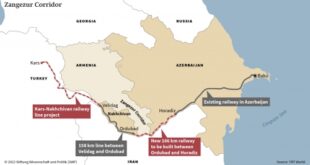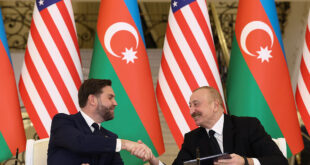Throughout the history of modern warfare it is difficult to imagine a more wretched existence than the lot of the common Russian infantryman. From the Napoleonic wars to the Second World War, Russian commanders have taken the view that their soldiers are little better than cannon fodder whose survival is the least of their concerns as they seek to defend Mother Russia.Even heroic Russian military engagements, such as the magnificent resistance of Stalingrad in the 1940s, managed to achieve success only through the almost wilful sacrifice of the lives of tens of thousands of conscripts. And those who were lucky enough to be taken prisoner by the Nazis found themselves before a firing squad or exiled to certain death at a Siberian slave camp the moment they were repatriated.
It should come as no surprise, then, that the plight of young Russian conscripts sent to fight in Chechnya is little better than that of their wretched forebears.
When most Westerners think about Chechnya, they tend to concentrate on the appalling suffering inflicted on the country’s 100 million civilian population. In the two Chechen wars fought since 1994, when Grozny attempted to declare its independence from Moscow, an estimated 200,000 people – the majority of them, inevitably, civilians – have been killed and millions more injured or dispossessed.
But we should also spare a thought for the suffering of the ordinary soldiers given the almost impossible task of reasserting Russian suzerainty over this lawless and gang-infested part of the world.
From the outset, Russia’s military intervention in Chechnya, launched by Boris Yeltsin on 11 December 1994, was as ill-conceived as it was ill-prepared.
The Russian military’s fundamental lack of understanding of the challenge it faced was graphically illustrated by the Defence Ministry’s announcement that it would ‘capture Grozny with two regiments in two hours’.
By the end of the month the Russian army was suffering huge losses; on New Year’s Eve the 131st Maikop brigade was almost completely wiped out; during January 5,000 Russian officers and soldiers were killed in the Battle of Grozny.
Compare that to the estimated 4,000 coalition battlefield fatalities in Iraq in the four years since Saddam’s overthrow and you get some idea of the scale of Russia’s military catastrophe.
As happened after the Russian invasion of Afghanistan in 1979, Moscow’s intervention in Chechnya rapidly descended into a bloody and seemingly endless war of attrition, with both sides taking heavy casualties while the civilian population looked on helplessly at the devastation of their country.
In One Soldier’s War in Chechnya, Arkady Babchenko, a former Russian army conscript who now works as a journalist in Moscow, has provided a graphic and chilling account of what it was like to serve as a front-line Russian soldier during the first Chechen war.
As in previous Russian military campaigns, neither the Kremlin nor the Russian army’s top brass appear to be unduly concerned about the ordeal of their young soldiers, whether it is the appalling bullying they receive at the hands of their own NCOs or the mutilation they suffer if they are captured by bloodthirsty Chechen rebels.
Bullying is a fact of life in most army barracks, but not even the worst excesses committed at Deepcut can compare with the institutionalised violence that is routinely meted out to Russian recruits.
After one particularly savage attack on Babchenko and his fellow recruits, the author is unable to eat or breathe properly. ‘My spit is salty and bloody; my teeth have been busted loose ages ago and wobble in my mouth. I can’t eat solid food and have trouble even chewing bread…We can’t chew and we can’t eat because our chests have been so battered.’
As one young soldier remarks as they lie recovering on their beds, ‘Only the first six months is tough in the army. After that you don’t feel the pain.’
Their commanding officers turn a blind eye to this behaviour in the belief that, if the new recruits are to be an effective fighting force, they need first to toughened up.
As in Anthony Swofford’s Jarhead, the award-winning account of life in the American marines in the build-up to the 1991 Gulf War, Babchenko does not seek to wallow in his brutalisation but rather sees it as an inevitable rite of passage towards becoming a proper soldier. ‘It turns out there is nothing out of the ordinary about war. It’s still just ordinary life, only lived through very tough conditions with the constant knowledge that people are trying to kill you.’
Certainly, if the recruits feel brutalised by their training, that is as nothing compared with what they experience once they are finally sent into action.
On one occasion Babchenko and his colleagues watch powerless as a group of Chechen rebels slit the throat of a captured Russian soldier and leave him to die in the road.
On another, his battalion enters a village where the main square is planted with large crosses upon which Russian soldiers have been crucified. ‘They have been nailed up by their hands and each has a few bullet holes in his chest. They’ve all been castrated,’ Babchenko writes.
The Russians respond by rounding up all the local Chechen men and in half a day the whole village has been castrated.
Suddenly you understand why it’s been necessary to brutalise these young soldiers before sending them into a war none of them believe they can ever win.
Source: Telegraph newspaper online
 Eurasia Press & News
Eurasia Press & News



